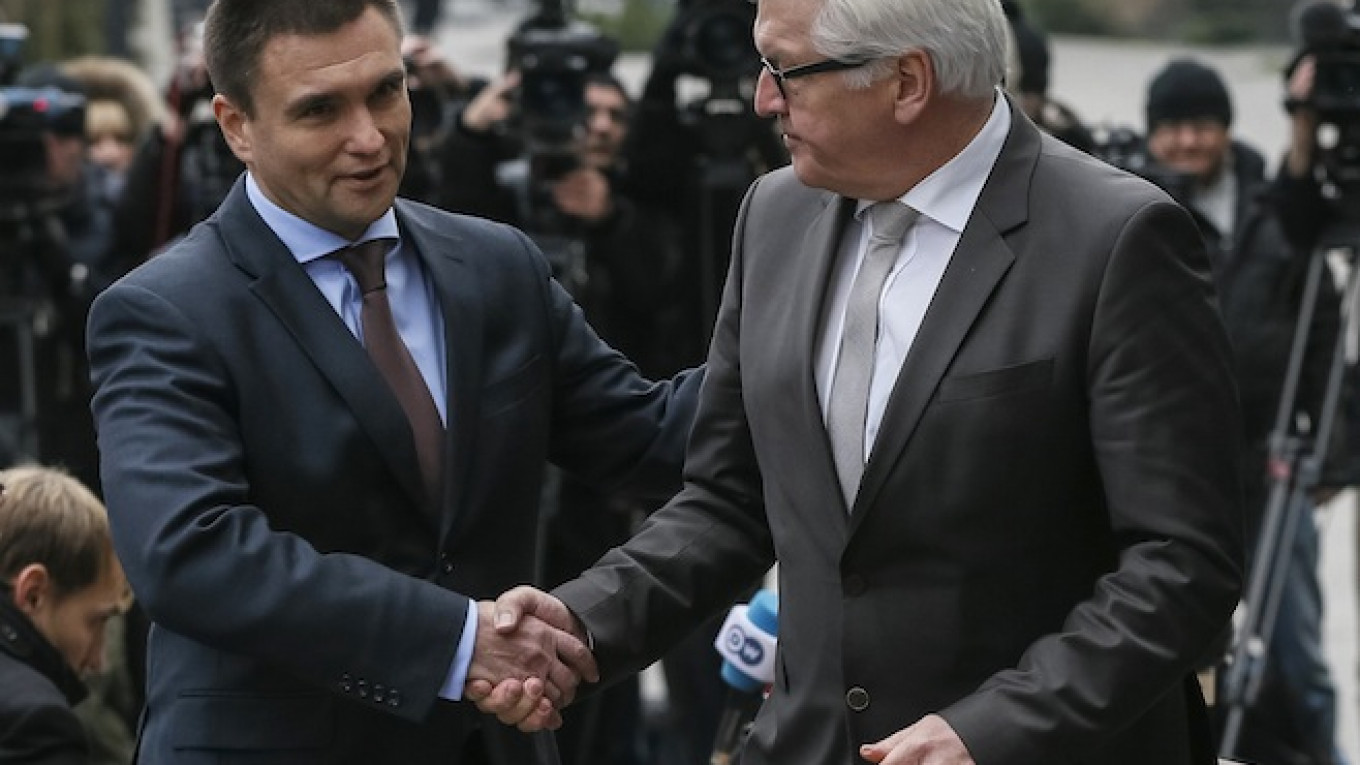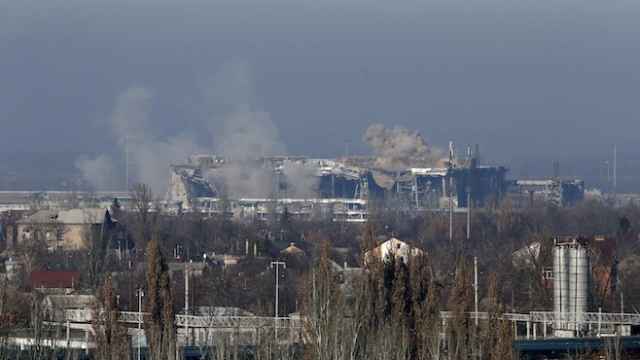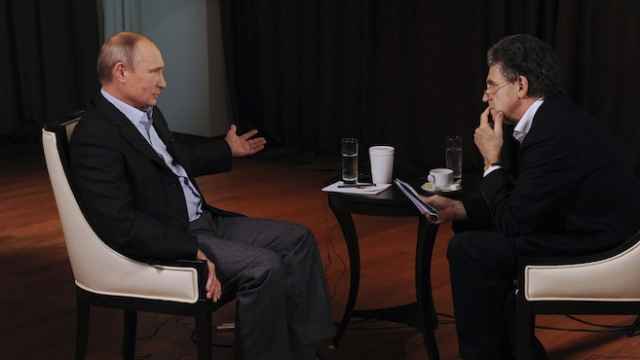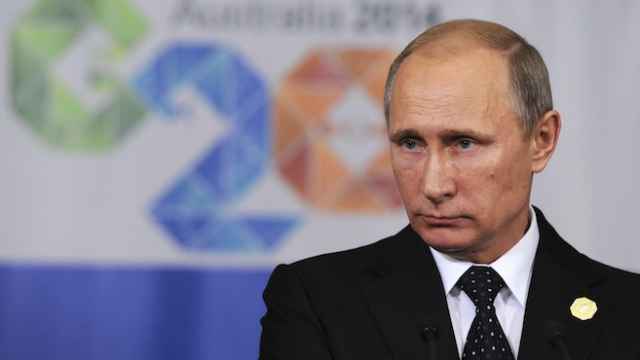Five Ukrainian soldiers have been killed in the conflict in eastern Ukraine in the past 24 hours, the military said on Tuesday, as Germany's foreign minister prepared to hold talks on the crisis in both Kiev and Moscow.
The trip by Frank-Walter Steinmeier will be one of the first visits by a senior German official to Moscow since the Ukraine crisis erupted earlier this year, provoking a deep rift between Russia and the West.
Steinmeier's visit comes amid rising violence in eastern Ukraine and accusations by Kiev and the West that Russia is sending soldiers and weapons over the border to help pro-Russian rebels there, a charge the Kremlin denies.
Russian Foreign Minister Sergei Lavrov played down the likelihood of Steinmeier's trip having any real impact on Russian policy towards Ukraine.
"The visit is a working one. We have agreed of course to talk about Ukraine, about our bilateral relations (but) no one is expecting any breakthrough," he told a news conference in the Belarussian capital Minsk.
Steinmeier will meet Ukrainian President Petro Poroshenko and Prime Minister Arseniy Yatsenyuk in Kiev before heading to Moscow.
"During the past 24 hours, due to shelling and explosions of mines, five Ukrainian soldiers have been killed and eight others received injuries of varying severity," military spokesman Vladislav Seleznyov said in a Facebook post.
Shelling from both sides has repeatedly punctured a cease-fire, agreed in a deal signed on Sept. 5, raising fears the truce could collapse completely.
More than 4,000 people have been killed overall since the separatist rebellions erupted in eastern Ukraine in April.
Tension between Russia and the West has increased further since the separatists staged elections on Nov. 2 in their self-proclaimed 'people's republics' in eastern Ukraine.
The United States and the EU have imposed sanctions on Moscow over its policy on Ukraine but the EU's 28 member states are deeply divided about bringing in more economic sanctions, fearing the measures and possible Russian reprisals could hurt their own economies which depend heavily on supplies of Russian gas.
"We are not going to plead with Western countries to end the sanctions," Lavrov said Tuesday in Minsk.
"We do not seek confrontation in relations with the EU but we will let our European partners know that sanctions are a road to nowhere," he added.
A Message from The Moscow Times:
Dear readers,
We are facing unprecedented challenges. Russia's Prosecutor General's Office has designated The Moscow Times as an "undesirable" organization, criminalizing our work and putting our staff at risk of prosecution. This follows our earlier unjust labeling as a "foreign agent."
These actions are direct attempts to silence independent journalism in Russia. The authorities claim our work "discredits the decisions of the Russian leadership." We see things differently: we strive to provide accurate, unbiased reporting on Russia.
We, the journalists of The Moscow Times, refuse to be silenced. But to continue our work, we need your help.
Your support, no matter how small, makes a world of difference. If you can, please support us monthly starting from just $2. It's quick to set up, and every contribution makes a significant impact.
By supporting The Moscow Times, you're defending open, independent journalism in the face of repression. Thank you for standing with us.
Remind me later.






